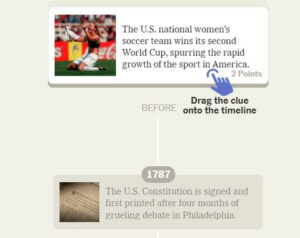
If your child has an Education, Health and Care Plan (EHCP), were you offered a personal budget? Were you told during the assessment that they wouldn’t qualify for one? Or was it not mentioned at all? If so, you’re not alone. An analysis of complaints about personal budgets by the Local Government and Social Care Ombudsman (LGSCO) has found that too many parents of children with SEND aren’t being given a choice in how their children are supported because their local councils don’t fully understand the personal budget process. It’s made a number of recommendations for better practice.
We looked at the latest data and found only around 5% of EHCPs have a personal budget, so this is a systemic issue- but not one that’s being looked at in the DfE’s SEND Change Programme as far as we can tell.
What’s an EHCP Personal Budget?
Parents, or the young person themselves, have a right to ask for a personal budget (PB) as part of an EHC needs assessment, to provide support that an LA can’t provide itself. PBs are supposed to be flexible and provide innovative support. It should be included in Section J of the EHC plan.
Several years ago, we ran a very useful article from the charity In Control about Personal Budgets. You can find it here
Personal Budgets were brought in in S49 of the 2014 Children and Families Act 2014. There are also separate regulations for direct payments for special educational provision, health care and social care provision:
- The Special Educational Needs (Personal Budget) Regulations 2014
- The National Health Service (Direct Payments) Regulations 2013
- The Community Care, services for Carers and Children’s Services (Direct Payments) Regulations 2009
- The Care and Support (Direct Payments) Regulations 2014
It doesn’t just have to be a sum of money as there are several ways they can be facilitated.
- Direct payments where individuals receive the cash to contract, purchase and manage the service required
- An arrangement where the council, school or college holds funds and arranges the support specified in the plan (notional budgets)
- A Third party arrangement where direct payments are paid and managed by an individual or organisation on behalf of the child’s parents or young person
- Or a combination of the above.
“The personal budget is the notional amount of money that would be needed to cover the cost of making the special educational provision specified in the EHC plan. You cannot have a personal budget for education unless you have an EHC plan. Information about the availability of personal budgets must be contained in your LA’s local offer.
Your LA must consider identifying a personal budget for educational provision if you request it when your LA issues a draft EHC plan following an EHC needs assessment or when it is reviewing an EHC plan. It is not legally required to consider identifying a personal budget for educational provision at other times.
Sometimes, your LA can refuse to identify a personal budget. It may do so when the special educational provision is being provided as part of a larger budget (for example, a contract with the NHS to provide all speech and language therapy or occupational therapy) and the LA can’t separate out or ‘disaggregate’ the personal budget for your child from that overall larger budget.”
What can Personal Budgets be used for?
Personal Budgets are used to provide support the LA has agreed should be included in the child or young person’s EHC plan, but that it doesn’t provide itself. These can include specialised education equipment, providing assistive technology, increasing their access to education or training, or individual support such as tutoring, especially when a child is not in school among others — it was originally designed to enable flexible and creative provision.
As an example, my own two children had a PB to provide private physiotherapy sessions to strengthen their muscles, so they could sit in lessons more comfortably, thus improving learning (as they have Ehlers-Danlos syndrome). I found a physio who worked at the local leisure centre who did weekly sessions with them that were designed to be fun and strengthen their muscles and joints. They did it together so there was just one cost for the LA. I wasn’t “offered” a PB, I had to raise the issue and push for it myself, as well as finding the right person to provide the sessions. The physio invoiced the LA directly so I didn’t have yet another thing to deal with. This was a few years ago when the EHCP system was new, as my children are now grown, so you would have thought everyone processing EHCPs would know about it by now. Clearly not.
There is little legal guidance about how a personal budget can be used. Because of this, your LA will set its own position on what it will fund, so you’ll need to prove it’s necessary to improve your child’s outcomes, and you will need to be persistent! However, the LA is still bound by what the law does actually specify about PBs, so as a reminder, should one be needed, COUNCIL POLICIES DO NOT TRUMP THE LAW.
Please note a PB cannot be used to fund a school or college place, but can be used as part of an EOTAS (Education Other Than At school) package.
What is going wrong?
SNJ’s Matt Keer investigated the figures for how many EHCPs in the country had personal budgets attached and found:
- At the end of 2021: around 25,000 EHCPs with personal budgets (roughly 5% of all EHCPs)
- At the end of 2022: 19,630 EHCPs with personal budgets. Matt says this figure is likely to be very inaccurate due to a change in the data collection process for EHCPs
- The vast majority of these personal budgets are for social care provision within the EHCP.
- Reference link for the above
So we can easily see that at under 5%, the most creative thing most LAs are doing with personal budgets is to avoid offering them to start off with.
Another issue is providing the information to parents. Councils are supposed to include information on personal budgets on their Local Offer websites. However, the Ombudsman has found local authority case officers are, “standing in the way of support” and not doing enough to offer a PB, or not knowing as much as they should about the process. Is this because they are under-trained or is it because councils don’t want parents to use them?
In its new report, the Ombudsman found “common problems” in how LAs administer personal budgets, with a lack of information about availability. The report includes examples and what they did to get redress for the families concerned. One thing the Ombudsman can’t do of course, is give back the time spent complaining, and crucially, the education and support a child has missed.
These common problems included:
- Not giving clear reasons for a decision and failing to give advice on the right to review
- Delays in considering parental requests
- Not giving clear reasons for a decision and failing to give advice on the right to review
- Delays in making payments
“Among all this confusion are young people with significant needs waiting for the support they are entitled to – children missing considerable amounts of school, missing specialist tutors or behavioural support – or parents being left significantly out of pocket, struggling to fund provision which should already have been in place.”
What are parents told about PBs?
I had to push for a personal budget for my kids, so I asked parents on our FB group what their experiences were. Many said they weren’t offered one – and this isn’t surprising as it seems most LAs wait to be asked. And of course, most parents have no idea that it is a possibility, so how can they ask? Here are some of the things they said:
“I was told: “We aren’t doing PBs here.”
“I asked and was told it’s too much paperwork and you need a good reason why. There was no actual useful information given to me though”.
“No I had to fight & request it . Did achieve it at annual review though with no appeal”
“I have recently had dealings with an LA who don’t even have a personal budget agreement format. Genuinely had no idea such a thing even existed.”
“We had to fight for it the whole way through, even up to and including after tribunal! Took six months to get the funding.”
“Had to ask for it. Then LA said [I’d used the] wrong format, so I resubmitted then they delayed in answering and then took it to a secret panel. Then they said no. Went to complaint. All they agreed to only pay my fuel. But only for a set period.”
“I asked for 5+ years and the LA just didn’t seem to know how to approach it even for an already agreed package of care. Couldn’t have been easier but it took an appeal and several corrections in the 5th year to get right.”
“My case officer suggested we request one (transition to post-16 review) and signposted me to a charity to discuss what sort of support and hours we should factor in to the request. She has been really helpful. They do exist.”
Parents via our Facebook group
An independent Portage worker told us she once suggested a family ask for a PB to pay for her services until the child could attend a nursery. She says that the case worker initially didn’t know what a personal budget was but they agreed to fund the provision. So clearly there are good people out there who will help, and the learning needs to be massively extended. Of course, it may be that an LA tells its case officers not to offer them unless they’re asked…
My child needs a personal budget but we weren’t offered one, what can I do?
If your child’s current support isn’t working as it should, IPSEA says you could request an emergency review of their EHCP, asking for it to be amended to include the type of support you have in mind. IPSEA continues, “We are aware that it often takes a long time to get a plan amended, so you could suggest to the LA that the support starts straight away (if the funding is already available for it) with the finalised EHC plan to follow.”
Paul Najsarek, Local Government and Social Care Ombudsman, said:
“Parents are often best placed to understand their children’s needs. The use of personal budgets should allow councils and parents to act as equal partners to determine the support needed and how this is funded, but without this in place, parents can often feel left at the mercy of a system where systemic problems are compounded by a lack of understanding by those in power.
“The problems we uncover in our investigations about personal budgets is yet another facet of evidence that demonstrates just how fractured the system is for children and young people with special educational needs and disabilities.
“Our evidence across the board suggests the system is in crisis. The Government has come up with proposals to improve the system, and it now needs to progress urgently with the reforms it has pledged to make in this year’s improvement plan.
“I would also urge council leaders to reflect on the practical learning the report offers to ensure parents in their areas are given the freedom to choose how their children are supported.”
What are the Ombudsman’s recommendations?
There is nothing we can find in the SEND Improvement Plan/Change Programme about personal budgets. However, the Ombudsman’s report made a number of recommendations to improve practice. None of them are rocket science and some are really pretty basic – like make sure you have policies on your Local Offer website that are legally compliant.
- Ensure the council has legally compliant information on its website about personal budgets and direct payments
- Review and, if necessary, amend, the council’s personal budget and direct payment policies
- Review the council’s procedures to ensure it provides parents, carers and young people with information to help them through the process
- Introduce templates for personal budget/direct payment agreements and personal budget/direct payment refusals
- Ensure direct payment agreements specify terms and conditions for invoicing and making payments, so parents know what information they will be expected to provide to receive the payments
- Ensure parents, carers and young people know about their right to ask for a review of the council’s decision to refuse a direct payment
- Have a clear and transparent procedure for reviewing decisions about direct payments
- Train front-line staff to recognise direct payments requests and to provide advice to parents and carers
The Ombudsman also made recommendations for local councillors including checking the LA has a compliant policy for personal budget and direct payment policy, reviewing the process for requesting one, including timescales, information available, how they are paid for and how they are monitored.
Download the report here (PDF)
Also read:
Don’t miss a thing!
Don’t miss any posts from SNJ – simply add your email address below. You must click the link in the confirmation email you’ll receive to activate your free subscription.
You can also keep up with us by following our WhatsApp Channel!
Want more? Be an SNJ Patron!
SNJ is a non-profit company and everyone who writes here does so voluntarily. We need your support to help us with costs by donating once or as a regular patron. Regular donors get an exclusive SEND update newsletter as thanks! Find out more here
Related
#Ombudsman #report #councils #standing #support #failing #offer #personal #budgets #EHCP #process #Special #Jungle





More Stories
SEND Funding Fact Check 2: Record funding or lack of cash? Which is true—and where’s the money gone? – Special Needs Jungle
Lamination Experiment – Mrs. D’s Corner
Must-Have Containers for Special Education Teachers – Simply Special Education